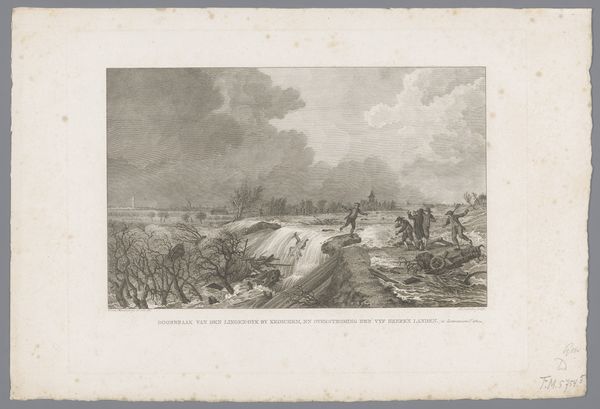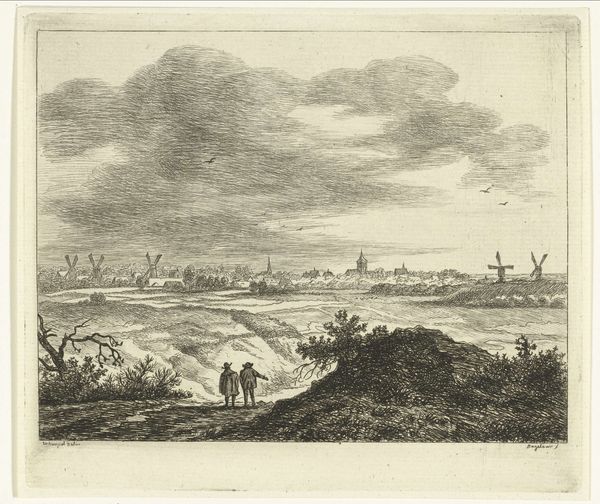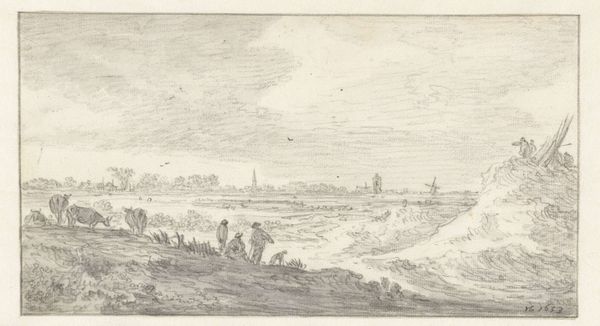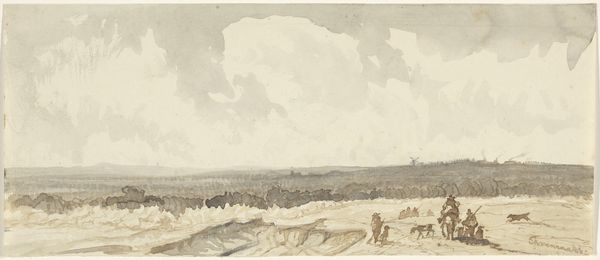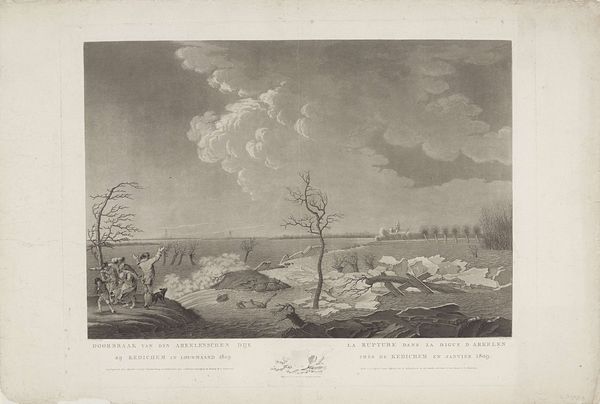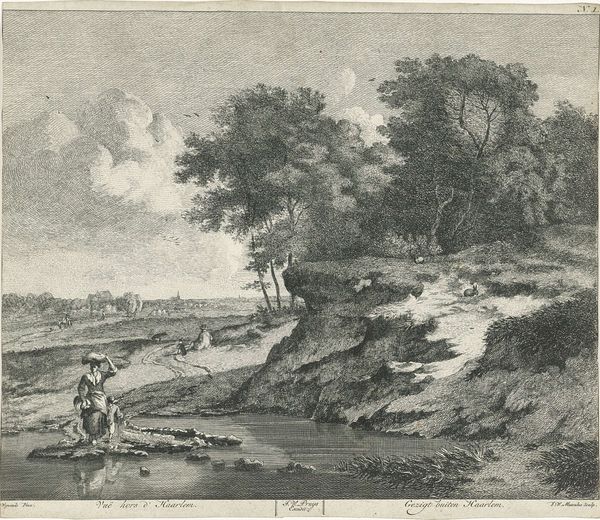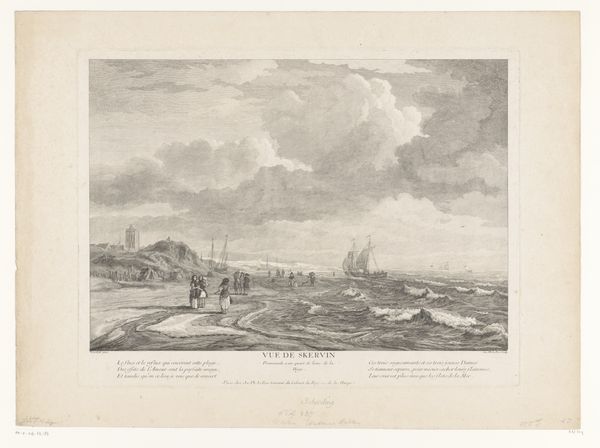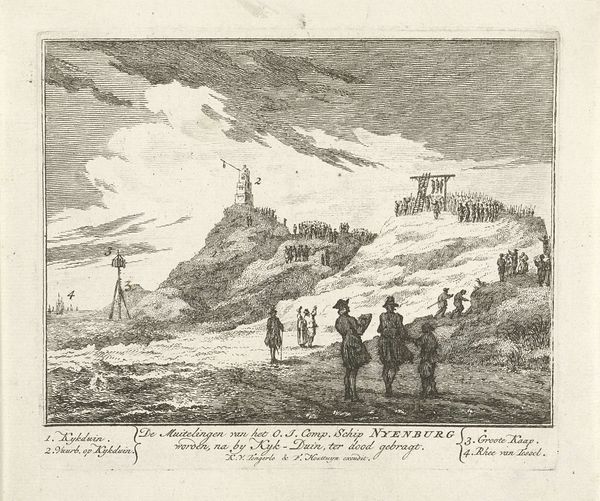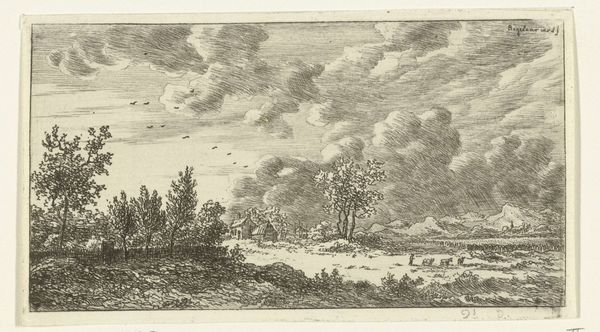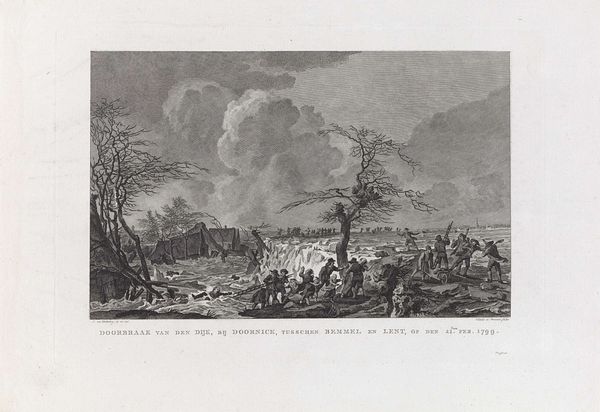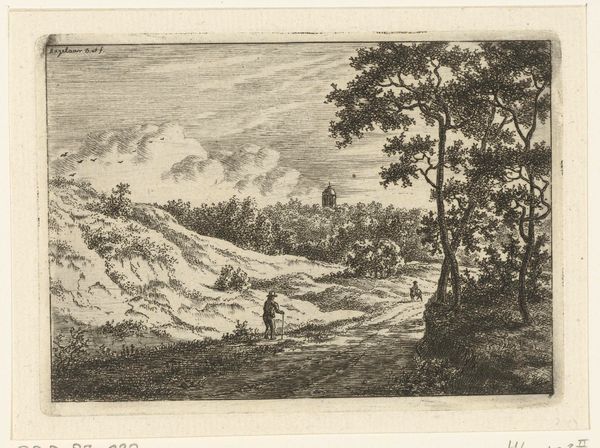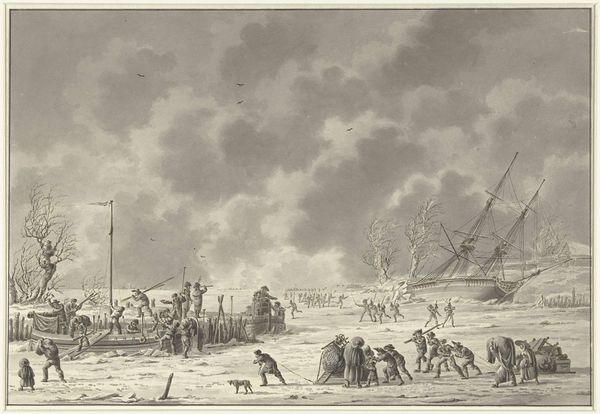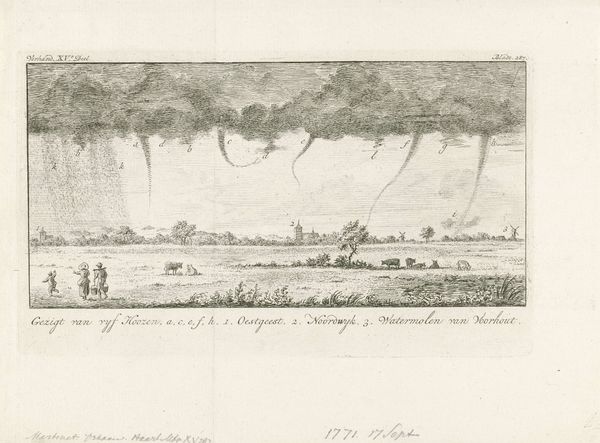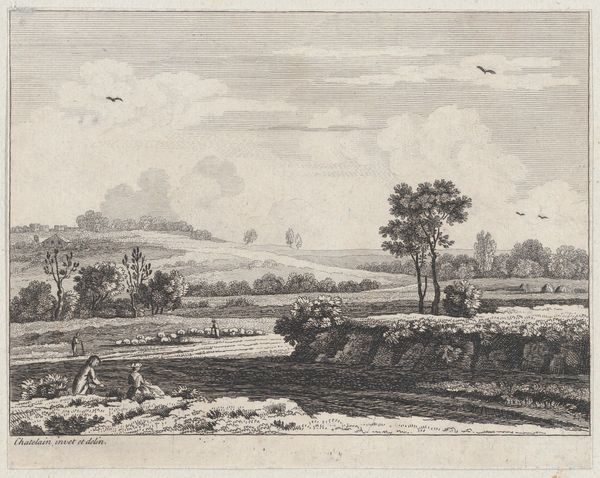
drawing, print, etching
#
drawing
#
neoclacissism
#
aged paper
#
toned paper
#
light pencil work
# print
#
etching
#
pencil sketch
#
sketch book
#
landscape
#
personal sketchbook
#
sketchbook drawing
#
watercolour illustration
#
history-painting
#
storyboard and sketchbook work
#
sketchbook art
Dimensions: height 106 mm, width 125 mm
Copyright: Rijks Museum: Open Domain
This image, made in 1809, depicts the flood at Kedichem. Notice the stark division between the dynamic chaos of the floodwaters and the comparatively ordered landscape in the background, punctuated by windmills and a church spire. Consider the figure triumphantly posed atop the broken dike, arms outstretched. This gesture, reminiscent of the "Victory" motif found in classical art—think of Nike of Samothrace—is here transplanted into a scene of disaster. The gesture is a universal expression of triumph, echoing across centuries, yet the context here twists it. The flood, a symbol of nature’s untamed power, contrasts with humanity's attempts at control. This tension is palpable, stirring primal fears of being overwhelmed, a collective memory perhaps rooted in ancient flood myths. The emotional power of this image lies in its stark juxtaposition: triumph amidst ruin, order threatened by chaos, compelling us to reflect on our precarious place within the natural world. This image reveals how symbols, like the victorious pose, are not static but cyclical, continually reappearing, evolving, and acquiring new meanings.
Comments
No comments
Be the first to comment and join the conversation on the ultimate creative platform.
